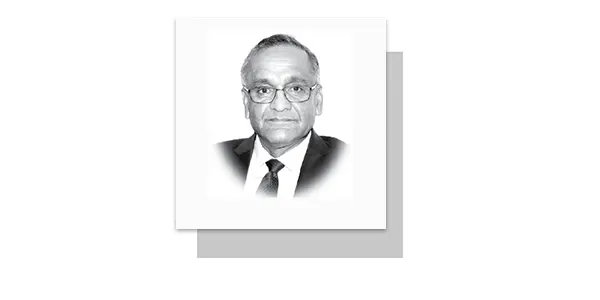MY childhood memories of Lahore include the American Centre and British Council libraries, Khana-i-Farhang Iran and various publications of Goethe Institute and Alliance Françoise. As a teenager, I would wonder what these institutions were meant for and what purpose did they serve. The same question also arose when I heard BBC Urdu Service. Why would the British Broadcasting Service (BBC) be interested in broadcasting news for us in Urdu. In the evening, we would enjoy TV serials like Six Million Dollar Man and Bionic Woman.
Cinema had two choices, either a Pakistani movie or a Hollywood one. Growing up in University life all that we heard were the MIT, Stanford, Cambridge and Oxford Universities. It was several decades later that I understood how powerful these instruments of cultural projection were. Knowingly or unknowingly I did develop a familiarity and closeness for countries whose culture was reflected in these libraries, TV programs, movies, music and literature. And that is the case with most of us. That precisely is the soft power of those countries. That is when countries influence others through attraction and persuasion: The exact opposite of force and coercion which define hard power. In realpolitik, soft and hard powers go hand in hand, but never substitute each other.
Though the term Soft Power gained currency only in the late 20th century, the practice of enticing other people to one’s own national culture and values is an ancient phenomenon. Even Greeks and Romans used their cultural and intellectual achievements to spread their influence. The spread of the Greek language and Roman law is a classic example of soft power that shaped empires for centuries to come. During the Enlightenment, European thinkers and their ideas about democracy and human rights demonstrated the power of ideology. In 20th century, US culture, particularly through Hollywood movies, music and technology became a global force, demonstrating the importance of soft power.
Every time we see a Mercedes or BMW car on the road, somewhere in our minds we appreciate German technology and every time we eat Chinese food we appreciate Chinese cuisine. In recent decades Bollywood and lately Turkish and South Korean cinema has been permeating across international borders. Turkish serial ‘Ertugrul’ is a mega success in showcasing Turkey’s rich history and glorious past. Policymakers and diplomats today fully realize the importance of Soft Power as an important component of Diplomacy. Modern innovations and technology have added to its importance and role. It has made it easier for smaller countries to build up and exert their Soft power. Soft power is no longer an exclusive domain of the big and the rich countries like the US and UK. Many smaller countries are also leveraging their soft power through media, education and diplomatic outreach. How does Pakistan fare in Soft Power? For long, Squash, Hockey and Cricket had served to boost our Soft Power. That era appears to have faded away. Coke Studio has done a good bit. Some Government initiatives like Pakistan Chairs at selected foreign universities have lost steam i.e. if at all they were delivering well. Perhaps the most under-utilized tool for boosting our Soft Power is PTV-World. It is already available with us. Existing – under different names and forms – since 1992, its potential to boost our Soft Power has never been realized even a quarter of the way.
Sadly, it was never utilized for this purpose. Initially, in the 1990s it was launched to target Pakistani Diaspora abroad. That might have been required back in the 1990s, but not anymore. Now with the availability of Social Media and universal accessibility of PTV, that objective has outlived its utility. This Channel, carrying our national flag, can be used to project not just our image but also our narrative. One could justifiably say that it already is airing programs in full conformity with our national priorities. True, but then who is watching these programs? Why should a foreign audience – whom we need to target – tune in to PTV and listen to our narrative where there is nothing that relates to him? If we want foreign audiences to watch PTV, the Channel must contain content that is of interest to the targeted audience. And there is no dearth of such content. The Buddhist, Hindu and Sikh heritage of Pakistan alone, interests a huge segment of the world population. Connecting with foreign students in their own homelands through educational programmes can serve the same purpose for which we (and other countries) offer scholarships to foreign students.
In-depth and quality analysis of global political issues would attract audiences in different regions. Dubbed versions of our TV dramas can provide good entertainment to audiences abroad. Take the example of the popularity of Coke Studio. An engagement with the international audience by Pakistan’s national TV, itself would add to our Soft Power; projection of our image and narrative would automatically follow. To present such content, what we need is focused and persistent efforts. Rest assured, the expectation that any foreigner would tune in to PTV-World to watch content on our image and narrative would remain unfulfilled.
—The writer is former Special Secretary, Pakistan Foreign Ministry and former Ambassador to Nepal and South Africa.










